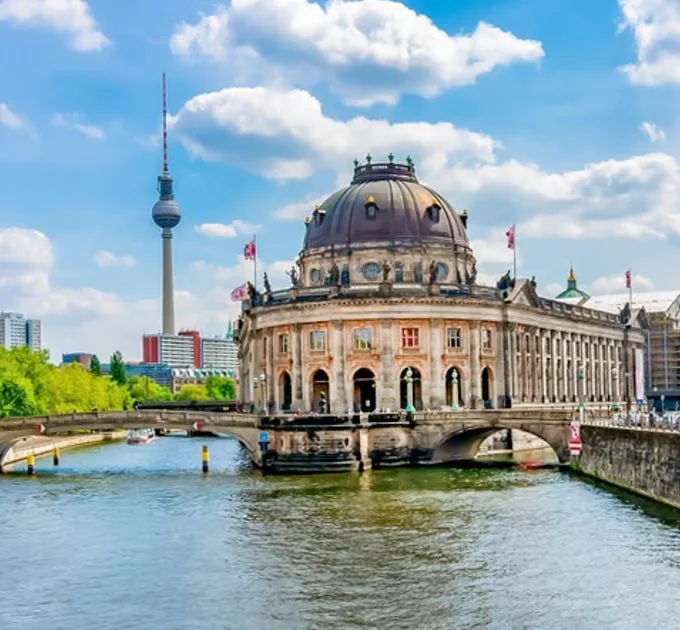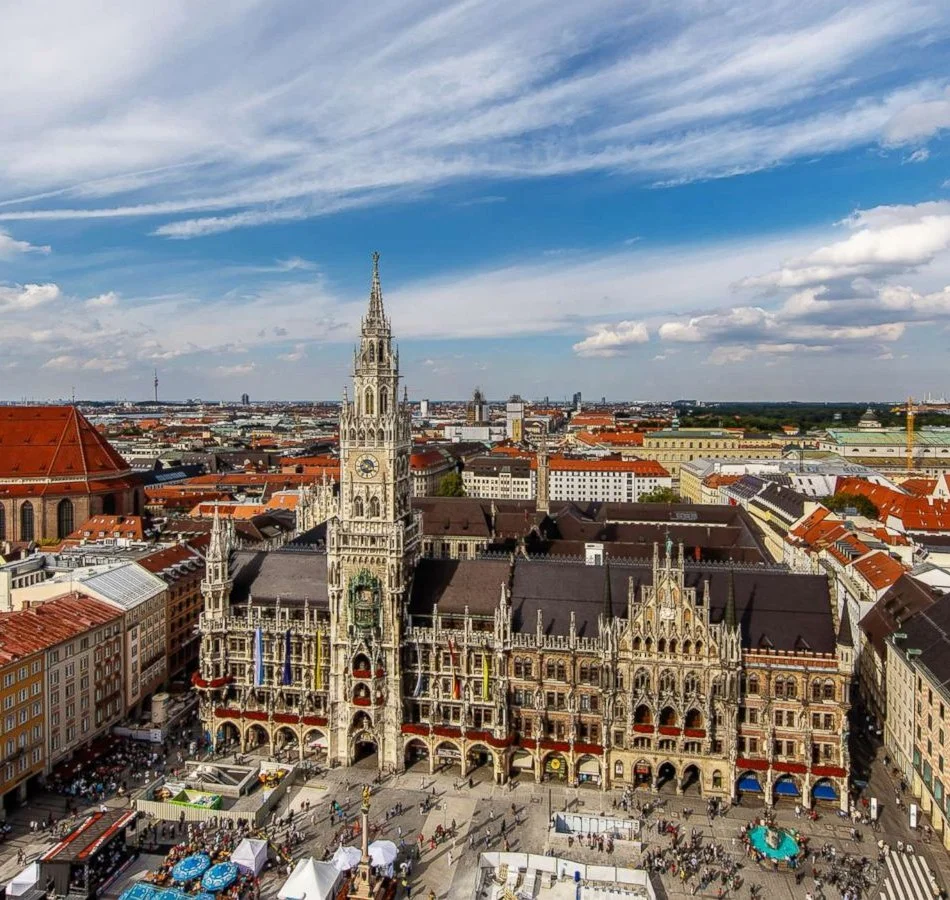Germany
CET (Central European Time)
UTC+1 (Winter) / UTC+2 (Summer)
Daylight saving time is observed
Euro (€)
Widely used across the Eurozone
Competitive exchange rates and global acceptance
From the Holy Roman Empire to modern reunification in 1990
Rich heritage in art, science, and politics
A blend of medieval, modern, and contemporary influences
Visa-Free Countries
Visa on Arrival Countries
E-Visa Countries
Visa Required Countries
Culture
Germany is a country where historical legacy meets modern creativity. Its cultural identity is shaped by centuries of art, philosophy, literature, and innovation.
Key elements of German culture include:
- Regional Diversity: Each state—such as Bavaria, Saxony and Hesse—has its own customs, dialects, and culinary traditions, making the country a vibrant mosaic of regional identities.
- Historical Heritage: From the medieval castles and Gothic cathedrals to the legacy of the Reformation and the division during the Cold War, Germany's past is visible in its architecture and museums.
- Art and Music: Germany has produced world-class composers like Bach, Beethoven, and Wagner, and is home to dynamic contemporary art scenes. Its cultural festivals celebrate classical music, opera, and modern performances.
- Festivals and Traditions: Oktoberfest in Munich, Carnival in Cologne, and Christmas markets throughout the country exemplify the strong festive traditions that blend historical customs with modern revelry.
- Culinary Excellence: German cuisine is famous for its bread varieties, sausages, and beers. Regional specialties such as Bavarian pretzels, Black Forest cake, and hearty stews offer a taste of local traditions.
- Intellectual and Scientific Innovation: Renowned for its contributions to philosophy, engineering, and science, Germany continues to be a global leader in research and development.
Contemporary German society balances respect for tradition with an embrace of innovation. Cultural institutions, public art, and diverse festivals make Germany an engaging destination for those interested in history and modern trends alike.
Tourism & Best Sites to Visit
Germany is a destination that offers an impressive mix of bustling cities, serene countryside, and historic landmarks. Whether you are drawn to cosmopolitan urban centers or charming small towns, you will find endless opportunities to explore and experience.
Here are some of Germany's most remarkable destinations:





Berlin: The capital city is a dynamic hub of history, art, and nightlife. Explore the Berlin Wall memorial, Brandenburg Gate, and world-class museums, or stroll through trendy neighborhoods like Kreuzberg.
Neuschwanstein Castle: Set in the Bavarian Alps, this iconic castle inspired fairy-tale imagery and offers guided tours that reveal its fascinating history and breathtaking vistas.
Cologne: Home to the magnificent Cologne Cathedral and a vibrant riverside scene, this city combines Roman history with modern urban life.
Munich: Famous for Oktoberfest, Munich also offers beautiful parks, historic architecture, and a rich blend of Bavarian tradition and contemporary culture.
Black Forest: With its dense woodlands, quaint villages, and legendary folklore, the Black Forest region invites visitors to explore scenic hiking trails and charming local traditions.
Transportation
Germany is known for its exemplary transportation network, offering an array of options that ensure smooth travel across the country.
-
Air Travel: Major international hubs such as Frankfurt, Berlin Brandenburg, and Munich serve millions of passengers with efficient services and world-class amenities.
Railway: The Deutsche Bahn network offers high-speed ICE trains as well as regional services, providing punctual and comfortable journeys with extensive connections.
Road Transportation: Germany’s Autobahn network is famous for its no-speed-limit sections, well-maintained roads, and efficient signage, making self-driving an attractive option.
Bus Services: Long-distance and regional bus services complement the rail system, offering affordable travel with modern fleets and WiFi on board.
Urban Transportation: Cities are equipped with comprehensive public transit systems, including subways, trams, buses, and bike-sharing services, ensuring easy movement within urban areas.
Whether traveling between major cities or exploring the countryside, Germany’s transportation infrastructure is designed for both speed and comfort.
Airports
Germany boasts some of the busiest and most efficient airports in Europe. These hubs provide excellent connectivity and facilities for both international and domestic travelers.
- Berlin Brandenburg Airport (BER): Serving the capital, BER offers modern facilities, a wide range of international connections, and efficient public transit links.
- Frankfurt Airport (FRA): As one of Europe’s busiest hubs, FRA features extensive flight networks, luxury lounges, shopping areas, and robust ground transportation options.
- Hamburg Airport (HAM): This major airport in northern Germany offers regional connectivity along with international flights, serving as a gateway to the port city of Hamburg.
- Munich Airport (MUC): Known for its passenger-friendly services, Munich Airport provides fast check-in procedures, quality dining options, and easy access to the city center.
- Regional Airports: Numerous smaller airports throughout Germany ensure that even remote regions remain accessible, often serving seasonal and charter flights.
At all major airports, transportation options such as taxis, rental cars, and efficient public transit are available to ensure seamless onward travel.
Visa & Travel Information
As a member of the Schengen Area, Germany adheres to unified visa policies. Visitors from many countries enjoy visa-free entry for short stays, while others must apply for a Schengen visa.
Visa Options by Nationality
The table below outlines visa requirements for common nationalities:
| Nationality | Visa Requirement | Maximum Stay |
|---|---|---|
| Citizens of EU/EEA countries | Visa-Free | No Limit |
| Citizens of USA, UK, Canada, Australia, and most Western nations | Visa-Free | 90 days (Schengen) |
| Most other nationalities | Schengen Visa Required | 90 days |
Visa Application Process: For travelers needing a visa:
- Submit your Schengen visa application at the German consulate or embassy in your home country. Typical documentation includes a valid passport, recent photograph, travel itinerary, and proof of accommodation.
- A passport valid for at least three months beyond your planned departure.
- A valid visa or ETIAS authorization (if applicable).
- Proof of sufficient funds and confirmed travel arrangements.
- Travel insurance covering medical expenses and repatriation.
- Return or onward travel tickets.
Entry Requirements: Visitors must have:
